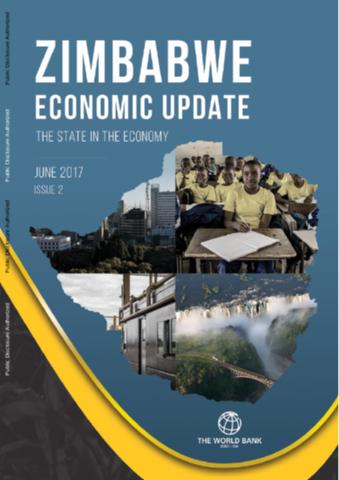Resource information
Zimbabwe’s economy grew by 0.7 percent in 2016 despite the combined effect of the El Nino drought and domestic financial turmoil. The drought reduced agricultural output and increased food prices towards the end of the year, despite the government’s efforts to boost production and stabilize prices. The public provision of agricultural inputs, the creation of food-for-work programs, and the establishment of price supports for staple foods accentuated the government’s expansionary fiscal-policy stance. Meanwhile, the government also increased spending on a cash basis to clear domestic arrears. The authorities financed much of the widening fiscal deficit by issuing Treasury bills purchased by commercial banks and a US$ 1 billion overdrafts with the RBZ. As domestic borrowing reduced liquidity and crowded out credit to the private sector, demand fell, imports contracted sharply, and economic growth slowed. Good rains are projected to boost growth in 2017 but other sectors remain lackluster. To allow GDP growth to recover in 2017 and beyond, the authorities will need to improve public expenditure efficiency and ensure adequate liquidity in the financial sector. The newly introduced command agriculture program provided farmers with inputs which are to be repaid by delivering grain to the Grain Marketing Board at the end of the growing season. These policies are projected to boost agricultural output in 2017. However, government intervention is both expensive and inefficient, especially the use of price support, as floor prices are set far higher than import competing prices.4 Favorable rains during the 2016/17 agricultural season are expected to drive a robust recovery, and the agricultural sector is projected to make a sizeable contribution to GDP growth in 2017. Improving weather conditions will be complemented by the ongoing suspension of import duties on some fertilizer products through end-2017, and by the ongoing allocation of underutilized land managed by the parastatal ARDA and other government agencies to experienced farmers.


